|
John D. Norton
Not Quite the Latest
|
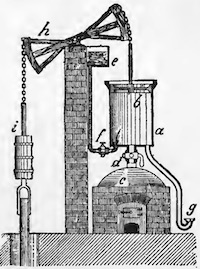 |
In 1824, Sadi Carnot proposed the strange, internally
contradictory notion of a thermodynamically reversible process as
the most efficient in the context of dissipative heat engines.
They are analogous to the reversible geometrical movements that
his father, Lazare, had earlier found to be the most efficient in
ordinary, mechanically dissipative machines. |
"How Analogy Helped Create the New Science of
Thermodynamics" Synthese. 200 (2022),
article 269, pp. 1-42. Download. |

|
I develop a deflationary, empiricist account of possibility and
argue that other accounts of possibility, notably metaphysical
possibility, fail, in so far as they seek to go beyond the
empiricist notion.
The figure at left is the
realization of a metaphysically impossible round square ABCD in
spherical geometry. |
"How to Make Possibility Safe for Empiricists."
pp. 129-159 in Rethinking the Concept of Laws of Nature:
Natural order in the Light of Contemporary Science. ed.
Yemima Ben-Menahem. Springer, 2022. Download.
|
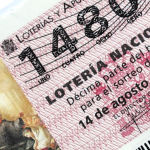
|
Matt Parker and I disagree on whether a multiple of four is less
likely than an even number in a drawing from an infinite lottery.
|
"An Infinite Lottery Paradox" Axiomathes
32, supplement issue 1 (2022), (Special Issue Epistemologia
2022), pp. 1-6. Download.
|
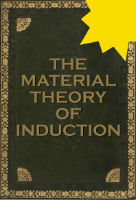
|
A special
issue of Studies in History and Philosophy of Science
is on the material theory of induction and has 14 papers. Here
are my responses to those papers. |
"Author's Responses," Studies in History and Philosophy of
Science, 85 (2021), pp. 114–126. Download. |
 |
In 1972, astronomers John N, Bahcall and Halton Arp debated at
the AAAS whether galactic redshifts resulted from a recession of
the galaxies. The material theory of induction is used to reveal
and assess their competing inductive inferences. |
"Inductive Inferences on Galactic Redshift,
Understood Materially." Ch. 9, pp. 227-246, in C. Soto (ed.), Current
Debates in Philosophy of Science, Synthese Library
477. Springer: Cham, Switzerland, 2023. Download |
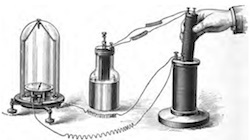 |
Metaphysicians believe that they have uncovered a deep truth
about how things must connect in the world, antecedent to all
science: the principle of causality. They are mistaken. |
"How Not to Think About Causation." Filozofuj!
2019, No.3, pp. 16-18. Read
in Polish or English. |

|
Landauer's principle mistakenly associates thermodynamic entropy
creation in a computing device with the logic of the computation
implemented. The mistake derives from a neglect of the dynamical
character of the probability W in Boltzmann's celebrated "S = k ln
W." |
"A Hot Mess," Inference: International Review
of Science. Vol. 4, Issue 3. Download |
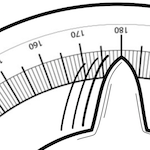
|
All efforts to design an infinite lottery machine using ordinary
probabilistic randomizers fail. This failure is not a result of a
lack of imagination in design. It is assured by a familiar problem
in set theory: we know no way to construct probabilistically
nonmeasurable sets. |
"How NOT to Build an Infinite Lottery Machine." Studies
in History and Philosophy of Science. 82(2020),
pp. 1-8. Download |

|
Ready for a little light entertainment? What happens if one asks
whether an infinite tower of turtles could overcome gravity and
support the world? What happens if we ask if there is some
mechanism in ordinary Newtonian mechanics that would let a castle
float in the air. |
"Turtles all
the way down."
Castles in the air. |
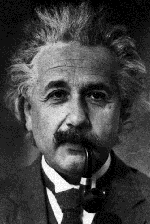
|
Einstein insisted that his principle of equivalence was a
founding heuristic for his general theory of relativity. However
this principle was in tension with his theory of 1912 and flatly
contradicted by his theory of 1913. Instead conservation of energy
and momentum provided a pathway to unique gravitational field
equations in both theories. |
"Einstein’s Conflicting Heuristics: The Discovery
of General Relativity," pp. 17-48 in Thinking about Space and
Time: 100 Years of Applying and Interpreting General Relativity.
Einstein Studies, Volume 15. C. Beisbart, T. Sauer, C. Wüthrich
(eds). Cham, Switzerland: Birhäuser/Springer Nature, 2020. Download. |
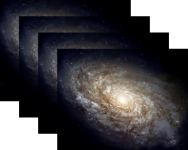 |
The measure problem in eternal inflationary cosmology arises
because we try to force a probability distribution where it is not
warranted. The problem is solved by asking which inductive logic
is picked out by the background conditions. That logic is the same
highly non-additive inductive logic as applies to an infinite
lottery. |
"Eternal Inflation: When Probabilities Fail,"Synthese
198 (Suppl 16) (2021), S3853-3875. Download. |
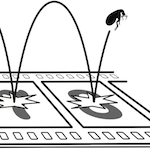 |
An infinite lottery machines chooses without favor among a
countable infinity of outcomes. This sort of selection creates
well-known problems for probability theory. But is it really
physically possible to construct such a machine?. |
"How to Build an Infinite Lottery Machine" 8
(2018), pp. 71-95.
(with Alexander R. Pruss) Correction to John D. Norton “How to
Build an Infinite Lottery Machine, ” European Journal for
Philosophy of Science. 8 (2018), pp. 143-44.
Download. |
 |
Narrative conventions in a thought experiment allow thought
experimenters great latitude in deciding which processes are
typical and bear generalization and which can be idealized away as
incidental. Misuse of this latitude has allowed one particular
thought experiment to be responsible for many decades of confused
science. |
"The Worst Thought Experiment," The
Routledge Companion to Thought Experiments. Eds. Michael T.
Stuart, James Robert Brown, and Yiftach Fehige. London: Routledge,
2018. pp. 454-68. Download.
|
 |
Our urge to oversimplify has led to many myths about what
powered Einstein's discoveries. Naive thinking? Capricious
rule-breaking? Operational thinking? I correct some myths and try
to give a more accurate picture of how Einstein made two
discoveries: special relativity and the light quantum. |
"How Einstein Did Not Discover," Physics in
Perspective, 18 (2016), pp. 249-282. Download.
|
 |
The received view is that a Maxwell's demon must fail to reverse
the second law of thermodynamics for reasons to do with
information and computation. This received view has failed, I
argue, and our continuing preoccupation with it has distracted us
from a simpler and more secure exorcism that merely uses the
Liouville theorem of statistical physics. I extend this exorcism
to the quantum case. |
"Maxwell's Demon Does not Compute." In Michael E.
Cuffaro and Samuel C. Fletcher, eds., Physical Perspectives
on Computation, Computational Perspectives on Physics.
Cambridge: Cambridge University Press. 2018. pp. 240-256. Download.
|
 |
The idea of a thermodynamically reversible process is central to
thermodynamics. Yet essentially all descriptions of them over
nearly two centuries are internally contradictory. They consist of
equilibrium states, which are by definition unchanging in time;
yet still they still change in time. I review the history and
offer a solution. |
"The Impossible Process: Thermodynamic
Reversibility," Studies in History and Philosophy of Modern
Physics, 55(2016), pp. 43-61. Download |
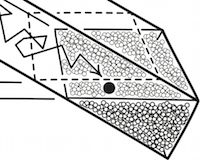 |
Thermodynamically reversible processes cannot be completed in
systems at molecular scales. They are fatally disrupted by
fluctuations. This paper reviews the general result and computes
two cases in detail. |
"Thermodynamically Reversible Processes in
Statistical Physics." American Journal of Physics, 85
(2017), pp. 135-145. Download. |
 |
Non-trivial calculi of inductive inference are shown to be
incomplete. That is, it is impossible for a calculus of inductive
inference to capture all inductive truths in some domain, no
matter how large, without resorting to inductive content drawn
from outside that domain. Hence inductive inference cannot be
characterized merely as inference that conforms with some
specified calculus. |
"A Demonstration of the Incompleteness of Calculi
of Inductive Inference" British Journal for the Philosophy of
Science, 70 (2019), pp. 1119–1144.
Download.
"The Ideal of the Completeness of Calculi of Inductive Inference:
An Introductory Guide to its Failure" Draft |
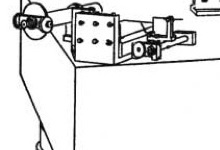 |
The replicability of experiment, the gold standard of evidence,
is not supported by a universal principle of replicability in
inductive logic. A failure of replication may not impugn a
credible experimental result; and a successful replication can
fail to vindicate an incredible experimental result.The evidential
import of successful replication of an experiment is determined by
the prevailing background facts. Their success has fostered the
illusion of a deeper, exceptionless principle. |
"Replicability of Experiment," Theoria,
30(No. 2) (2015), pp. 229-248. Download. |
| 1,
3, 5, 7, ... ? |
Standard accounts of inductive inference are unstable, meriting
skeptical attack. They have misidentified its fundamental nature.
Accounts of inductive inference should not be modeled on those of
deductive inference that are formal and non-contextual. Accounts
of inductive inference should be contextual and material. I
summarize the case for a material theory of induction. |
"A Material Defense of Inductive Inference." Download. |
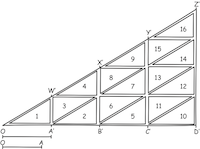 |
The inductive problem of extending the sequence 1, 3, 5, 7, is
solved when these numbers are the ratios of the incremental
distances fallen in successive unit times. The controlling fact is
Galileo's assumption that these ratios are invariant under a
change of the unit of time. It admits few laws and only one is
compatible with the two-numbered initial sequence 1, 3. |
"Invariance of Galileo's Law of Fall under a
Change of the Unit of Time." Download. |
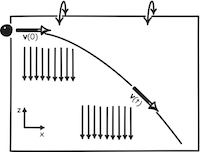 |
Curie's principle asserts that every symmetry of a cause
manifests as a symmetry of the effect. It can be formulated as a
tautology that is vacuous until it is instantiated. However
instantiation requires us to know the correct way to map causal
terminology onto the terms of a science. Causal metaphysics has
failed to provide a unique, correct way to carry out the mapping.
Thus successful or unsuccessful instantiation merely reflects our
freedom of choice in the mapping. |
"Curie's Truism." Philosophy of Science,
83(2016), pp. 1014-1026. Download. |
 |
The most successful exorcism of Maxwell’s demon is
Smoluchowski’s 1912 observation that thermal fluctuations would
likely disrupt the operation of any molecular scale demonic
machine. Information-theoretic exorcisms fail since these same
thermal fluctuations invalidate the molecular scale manipulations
upon which the thermodynamics of computation is based. A new
argument concerning conservation of phase space volume shows that
all Maxwell’s demons must fail. |
"All Shook Up: Fluctuations, Maxwell's Demon and
the Thermodynamics of Computation." Entropy, 2013, 15,
pp. 4432-4483. Download.
For a short extension of the exorcism to quantum theory, see ""The
Simplest Exorcism of Maxwell's Demon: The Quantum Version." Download. |
 |
Brownian computers are supposed to illustrate how logically
reversible mathematical operations can be computed by physical
processes that are thermodynamically reversible or nearly so. In
fact, they are thermodynamically irreversible processes that are
the analog of an uncontrolled expansion of a gas into a vacuum. |
"Brownian Computation is Thermodynamically
Irreversible." Foundations of Physics. 43
(2013), pp 1384-1410. Download.
"On Brownian Computation" International Journal of Modern
Physics: Conference Series. 33 (2014), pp. 1460366-1 to
1460366-6.download. |
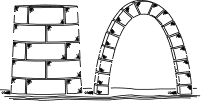 |
In a formal theory of induction, inductive inferences are
licensed by universal schemas. In a material theory of
induction, inductive inferences are licensed by facts. With this
change in the conception of the nature of induction, I argue
that the celebrated “problem of induction” can no longer be set
up and is thereby dissolved.
|
"A Material Dissolution of the Problem of
Induction." Synthese, Synthese. 191
(2014), pp. 671-690. Download. |
 |
In the burning fuse model of unbecoming in time, the future is
real and the past is unreal. It is used to motivate the idea that
there is something unbecoming in the present literature on the
metaphysics of time: its focus is merely the assigning of a label
“real.” |
"The Burning
Fuse Model of Unbecoming in Time." Studies in History
and Philosophy of Modern Physics. Forthcoming. |
 |
We argue that Monte Carlo simulations open no new epistemic
channels beyond that already employed by traditional simulations:
the inference by ordinary argumentation of conclusions from
assumptions built into the simulations. |
"Why Monte Carlo Simulations Are Inferences and
Not Experiments," (with Claus Beisbart) International Studies
in the Philosophy of Science 26 (No. 4,
December 2012), pp. 403-422. Download. |
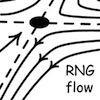 |
Are phase transitions a banner instance of emergence or treated
reductively by renormalization group methods? The answer depends
on how you define levels between which the relations of reduction
and emergence obtain. |
"Confusions
over Reduction and Emergence in the Physics of Phase Transitions"
in Goodies. |
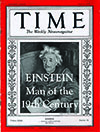 |
Modern writers often endow Einstein with a 21st century
prescience about physical theory that, it just so happens, is only
now vindicated by the latest results of the same writers'
research. There is a second side to Einstein. His outlook and
methods were clearly rooted in 19th century physics and a sense in
which his work fulfills the discoveries of the 19th century. |
"Einstein
as the Greatest of the Nineteenth Century Physicists," pp.
142-51 in Proceedings,
Seventh Quadrennial Fellows Conference of the Center for
Philosophy of Science (12-14 June 2012; Mugla, Turkey). |
 |
1. Approximations of arbitrarily large but finite systems are
often mistaken for infinite idealizations in statistical and
thermal physics. The problem is illustrated by thermodynamically
reversible processes.
2. Whether phase transitions comprise a failure of reduction is
confounded by a confusion of two senses of "level": the molecular
versus the thermodynamic level and the few component versus the
many component level. |
"Infinite Idealizations,"European Philosophy
of Science--Philosophy of Science in Europe and the Viennese
Heritage: Vienna Circle Institute Yearbook, Vol. 17
(Springer: Dordrecht-Heidelberg-London-New York), pp. 197-210. Download. |
 |
This paper proposes that idealizations are distinguished from
approximations in that only idealizations involve novel reference.
This difference is important when idealizations are created by
taking infinite limits such as in statistical mechanics. For these
infinite limits may have very strange properties, much odder than
the discontinuities of phase transitions now widely acknowledged
in the literature. |
"Approximation and Idealization: Why the
Difference Matters" Philosophy of Science, 79
(2012), pp. 207-232. Download. |
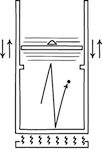 |
Entropy creation in excess of that tracked by Landauer's
principle is needed to overcome fluctuations in molecular scale
computation. This paper is a short account of the "no go" result
reported in "Waiting for
Landauer." |
"The End of the Thermodynamics of Computation: A
No Go Result."Philosophy of Science. 80,
(2013), pp. 1182-1192. Download. |
 |
At the age of sixteen, Einstein imagined chasing after a beam of
light. He later recalled that the thought experiment had played a
memorable role in his development of special relativity. Famous as
it is, it has proven difficult to understand just how the thought
experiment delivers its results. It fails to generate problems for
an ether-based electrodynamics. I propose that Einstein’s
canonical statement of the thought experiment from his 1946
“Autobiographical Notes,” makes most sense not as an argument
against ether-based electrodynamics, but as an argument against
“emission” theories of light. |
"Chasing the Light: Einstein's Most Famous Thought
Experiment," Thought Experiments in Philosophy, Science and the
Arts, eds., James Robert Brown, Mélanie Frappier and
Letitia Meynell, New York: Routledge, 2013. pp. 123-140.Download.
|
|
|
|
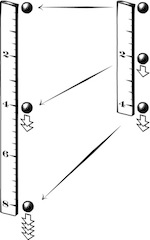 |
Galileo's refutation of the speed-distance law of fall in his Two
New Sciences is routinely dismissed as a moment of confused
argumentation. We urge that Galileo's argument correctly
identified why the speed-distance law is untenable, failing only
in its very last step. Using an ingenious combination of scaling
and self-similarity arguments, Galileo found correctly that
bodies, falling from rest according to this law, fall all
distances in equal times. What he failed to recognize in the last
step is that this time is infinite, the result of an exponential
dependence of distance on time. Instead, Galileo conflated it with
the other motion that satisfies this 'equal time' property,
instantaneous motion. |
"Galileo's Refutation of the Speed-Distance Law of
Fall Rehabilitated," (with Bryan Roberts) Centaurus.54
(2012) pp. 148-164. Download.
"The Scaling of Speeds and Distances in Galileo's Two New
Sciences: A Reply to Palmerino and Laird," (with Bryan
Roberts) Centaurus, 54 (2012) pp. 182-191. Download. |
 |
Albert Einstein read philosophy. It was not an affectation of a
celebrity-physicist trying to show his adoring public that he was
no mere technician, but a cultured thinker. It was an interest in
evidence from the start. I review some ways in which his
philosophical interests intersected with his science. |
“Philosophy in Einstein’s Science," Alternatives
to Materialist Philosophies of Science, Philip MacEwen,
ed., The Mellen Press. Download. |
 |
This chapter presents an opinionated assessment of what we can
learn about the ontology of space and time from the special and
general theories of relativity. |
“What Can We Learn about the Ontology of Space and
Time from the Theory of Relativity?” L. Sklar (ed.), Physical
Theory: Method and Interpretation, Oxford University Press.
Download |
IMAGE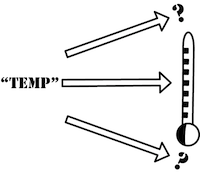 |
Contrary to the incommensurability thesis, I argue that the
referents of theoretical terms can remain stable under theory
change, if they are associated with “sparse meaning spaces.” In
them, reference is error tolerant, for there are no alternatives
in the neighborhood to which terms in altered descriptions can
shift their reference. |
"Dense and Sparse Meaning Spaces: Comments on
Travis Norsen, 'Scientific Cumulativity and Conceptual Change: The
Case of Temperature.'" in Richard M. Burian and Allan Gotthelf,
eds., Concepts, Induction, and the Growth of Scientific
Knowledge, forthcoming.Download |
vvv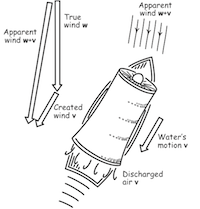 |
If you like sailing and philosophy, this is for you. Perplexing
paradoxes, causal conundra and tantalizing thought experiments. |
“Paradoxes of Sailing," Ch. 13, pp.148-63, in Sailing:
Philosophy for Everyone. Patrick A. Goold, Ed.,
Wiley-Blackwell, 2012. Download.
For river sailing without philosophy, see Sailing
at the Point.
|



































